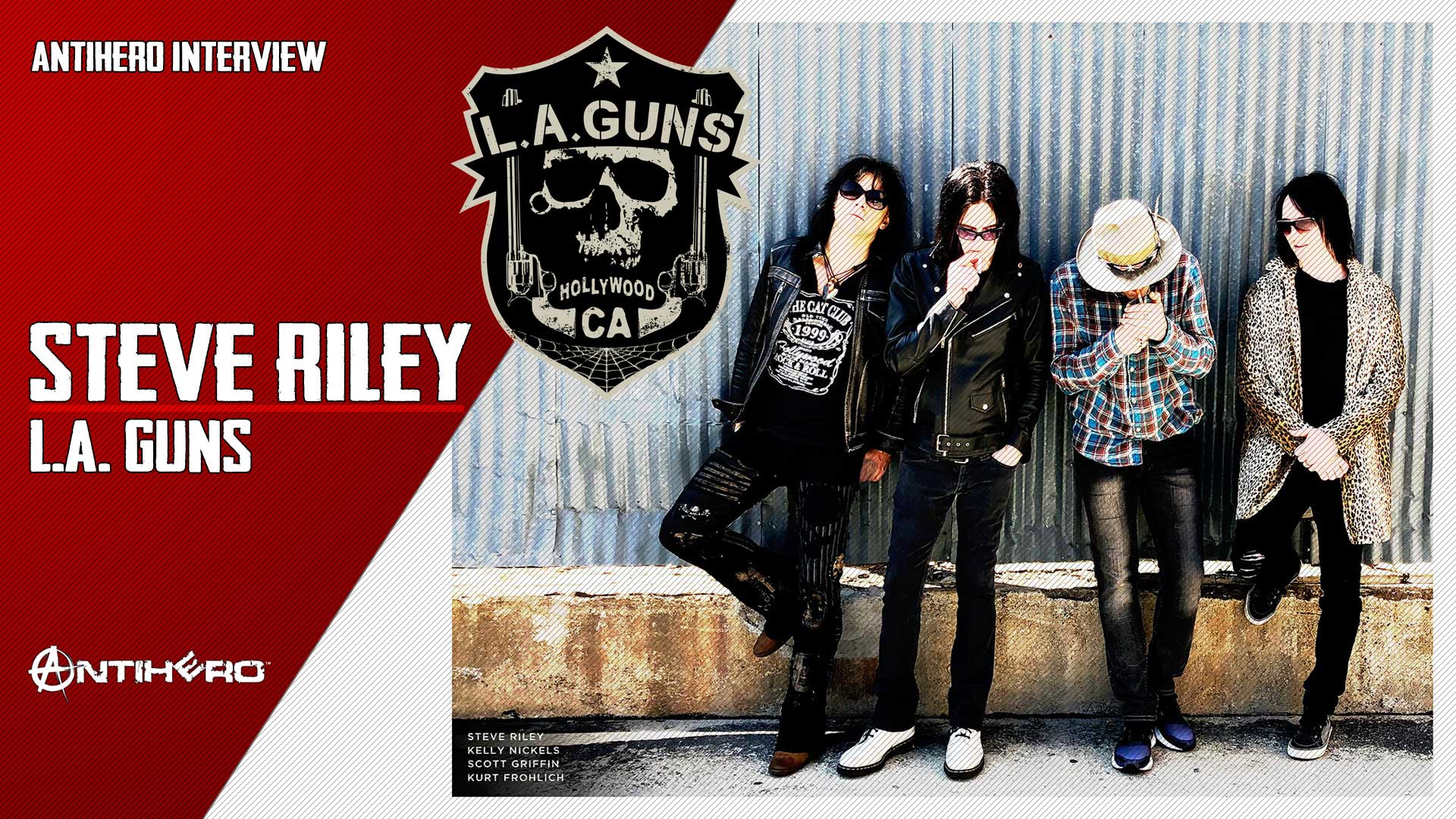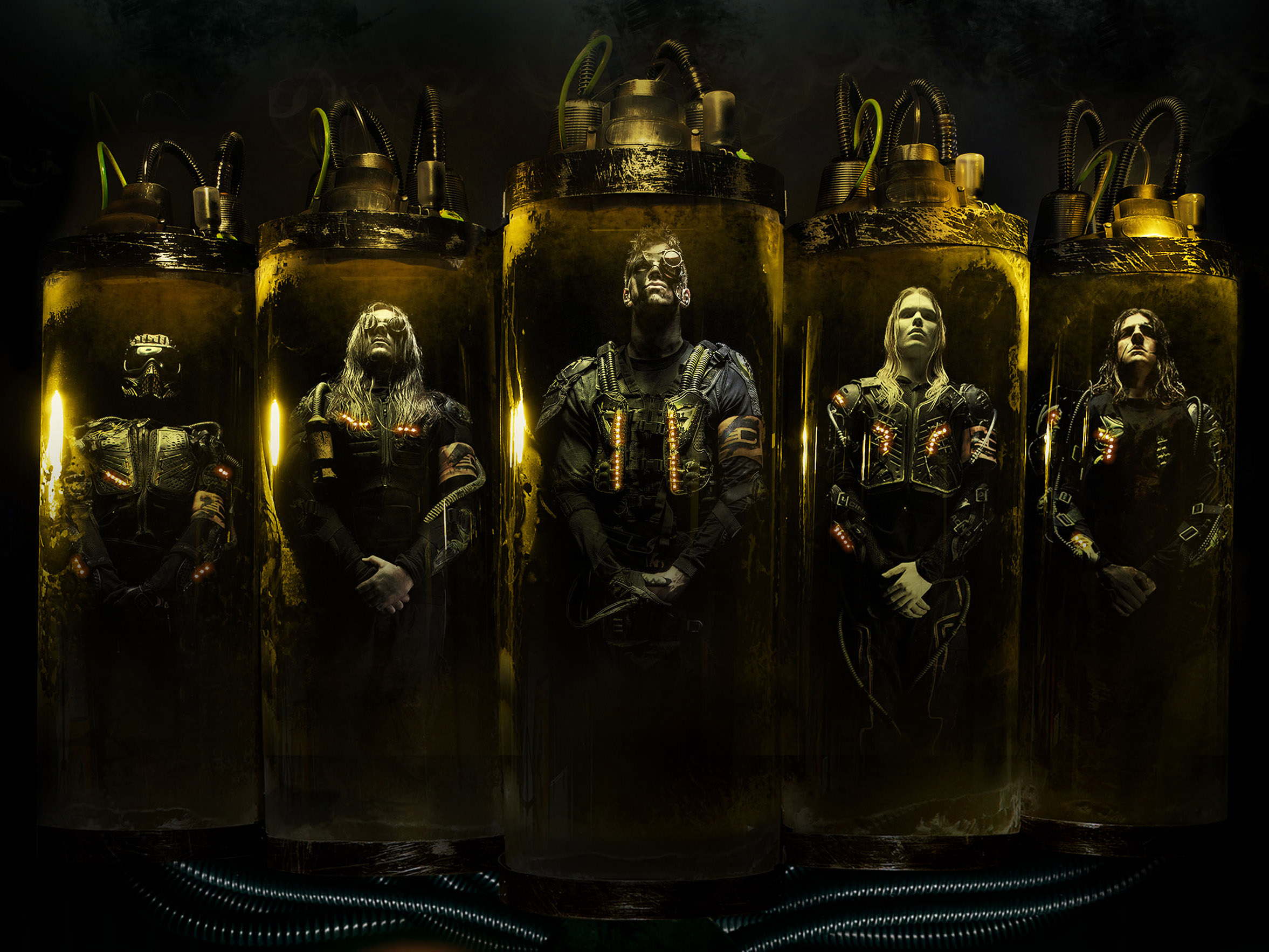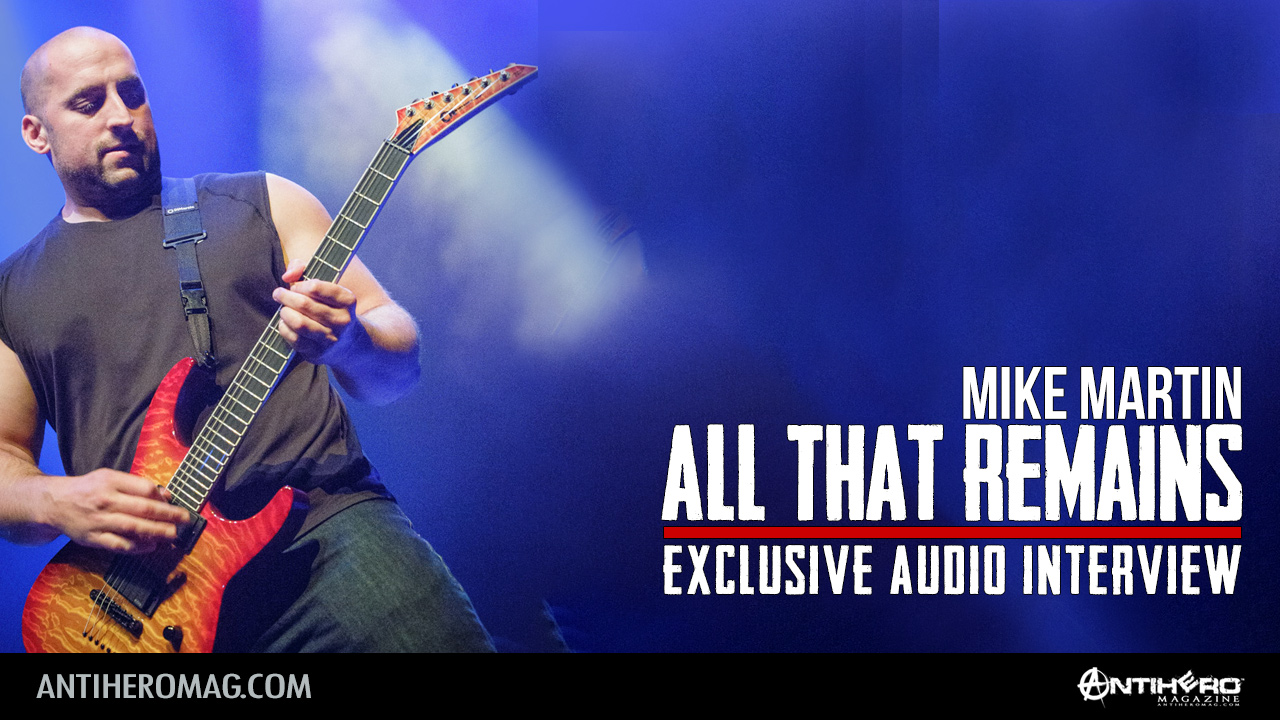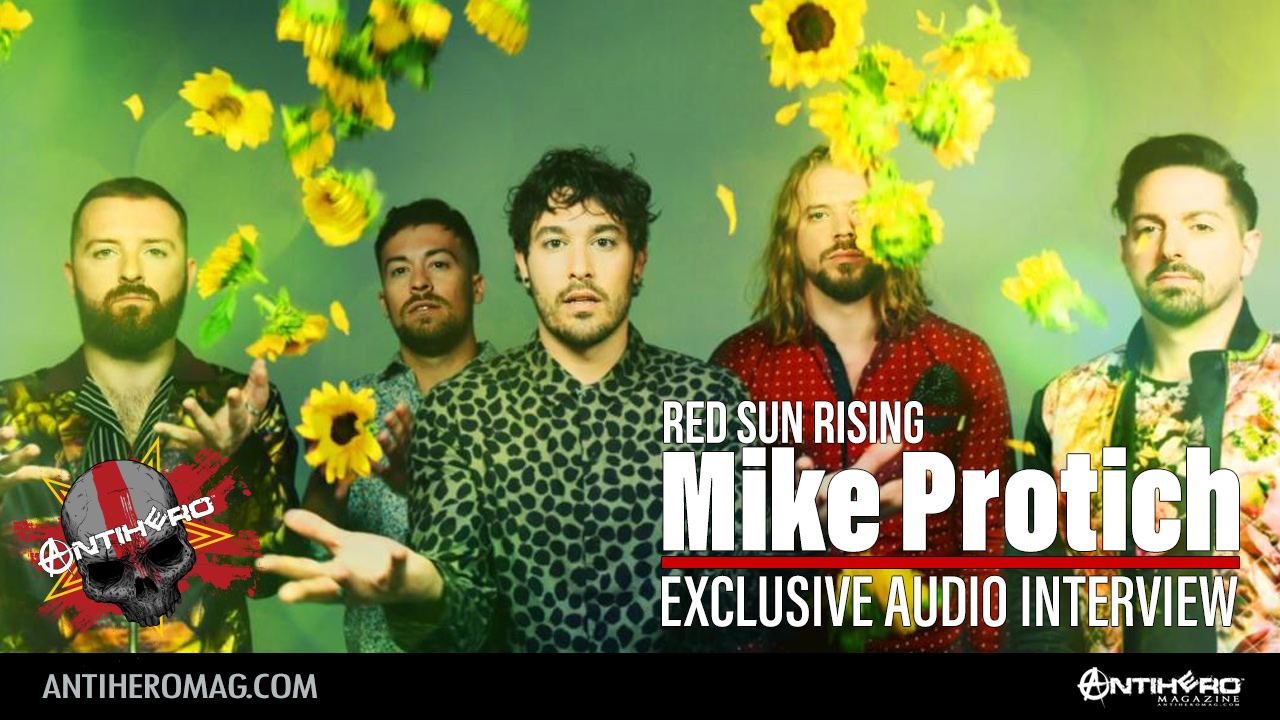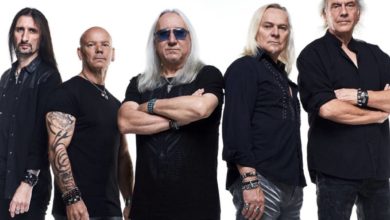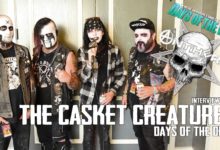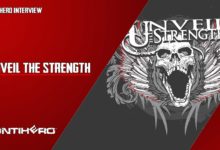My first introduction to Steve Riley was initially on an album by Keel, and then he was part of the classic W.A.S.P. band lineup on The Last Command and The Electric Circus. He subsequently became part of the original L.A. Guns where he drifted in and out of a varying band lineup until 2020, where two different lineups are coexisting until legal cases are resolved. Steve is part of a lineup with Kelly Nickels who have just released a great new single called “Crawl” ahead of a new album, Renegades, which is due out soon. I recently had the opportunity to talk all things music past to present with the man himself.
Steve Riley: Mark, how are you, mate?
ANTIHERO: I’m good. I’m good. Okay. It’s a very difficult time for the world. I’m just wondering how you’re spending all this extra time you have at home.
Steve Riley: Oh, I tell you what brother we’re all in the same boat and with us in the entertainment industry as you very well know. All our shows have been either canceled or postponed. Thankfully, most of them have just been postponed and they’re being pushed back into the latter part of the year. But we’re just kind of trying to follow protocol and we’ve been staying in and doing just the bank or the grocery store and then back home. So, this thing is getting old.
ANTIHERO: Do you find that in a difficult situation, like we’re currently going through it stimulates your creativity? Or it sort of gets you down a bit?
Steve Riley: I tell you what, what gets me down a little bit is the draconian measures that they’re taking on how they don’t want any movement and everything. That’s pretty much what gets me down. I’m not a real big guy for going out all the time because my job takes me out all the time. So, when I come down to Los Angeles, I pretty much like to stay around my place and hang around the house. But knowing that you just can’t go out and then when you do go out, you have to wear the mask and gloves, it does get you down a bit, brother, I tell you.
ANTIHERO: Musically, you first came on my musical radar on that Right to Rock album by Keel. I wonder if you could start just by talking about your memories of doing that album first with Keel before we move on to what you’re doing now.
Steve Riley: I have great memories of doing that album with Keel. It was just a great time and they welcomed me into the band and I had known Gene Simmons before then in the late seventies. And to know that he was involved and that he was going to produce the album, I was just gung-ho in doing it. And Gene was involved in every process of the making of that album. So, I got to work very closely with Gene and it was just a really great experience. And I got really fond memories of doing that album. And it ended up being a short-lived thing with them because I had done the album and we were doing the background vocals. Gene and I did pretty much all the background vocals on that Keel album. And I got the call from W.A.S.P and so I left right before the album was completed, right before it was mixed actually. And so it was a short-lived thing, but I had a pretty good time doing it, man. I can’t say anything bad about it.
ANTIHERO: And then of course you said there that you moved on to W.A.S.P, how was it being in W.A.S.P at that time, and was it as much fun as it looked?
Steve Riley: Oh, it absolutely was Mark. I’m telling you that first situation with W.A.S.P with Blackie, Chris, Randy Piper, and myself, that was a great band. And we knew we were a really good band, not just theatrically, but sonically, music, stage show, the way we played, it sounded, it looked great and it was something else. That first year in W.A.S.P was outrageous because we went around the world doing that Lyceum show, which was the full show with the meat and that girl on the rack. And it was just an unbelievable time. And I have really fond memories of that band and going and doing The Last Command was a blast too, because we just came straight off of that first world tour. And we were feeling so good. And we went in to do The Last Command and came out with a couple of good hits with Blind In Texas and Wild Child. So, those first two albums I did with them, I ended up doing four albums with them, but the first two albums with Randy Piper involved were just a blast. That band was great and I wish it had stayed together.
ANTIHERO: The band as it was then certainly attracted your fair share of negative publicity and controversy at the time.
Steve Riley: Oh yeah. You know the publicity was off the hook too with W.A.S.P too because before I had joined W.A.S.P, they had already gotten a tonne of publicity of Blackie and the guys were on the covers of a lot of magazines and they hadn’t even left town yet. Because when I joined, I was doing the Keel album while they were doing the first W.A.S.P album. So when I joined, the first W.A.S.P album was already put together, but they had not left LA yet. They had only played some clubs here in Los Angeles. So, they had gotten a tonne of publicity without even leaving LA, and then when I joined, that’s when we started the world tour. And we started in England with that Lyceum show and went on for about 18 months. But yeah, the publicity was a gas. Well, it was dangerous publicity and it was good publicity. And like Gene Simmons says, “Any publicity is good publicity.” So, that W.A.S.P got a lot of good and dangerous publicity and I thought it was great.
ANTIHERO: Next up for you was L.A Guns and you produced those classic albums, Cocked & Loaded and Hollywood Vampires. That was totally different obviously from W.A.S.P.
Steve Riley: It certainly was and I tell you what, I’ve said it in many interviews, W.A.S.P, Ratt, Motley Crue, Dokken, Great White, that first wave of metal out of Los Angeles, we were working so much, we were on the road all of us so much that we never really even noticed what was happening in Los Angeles because we’d only be back for a few weeks or a few days actually sometimes, and then back out on the road or back into the studio. So we didn’t notice the second wave of metal coming out of LA with GnR, L.A Guns, Faster Pussycat, and Jetboy, we didn’t see that happening. So when Blackie, then behaved by firing Randy Piper, then he fired me and then eventually fired Chris. He disbanded that great band.
But when that happened with me in 1987, and he let me go, I was just fortunate. I was approached by these guys in L.A Guns. They were big, big fans of W.A.S.P. I mean, huge fans, the guys in Guns N’ Roses were too. I didn’t realize that, that they were all huge fans of W.A.S.P and they approached me, and they asked me if I wanted to join. And I kind of went right from headlining Long Beach Arena to playing a club show with L.A Guns. So I didn’t really know about the second wave of metal and I was really fortunate to go right from W.A.S.P into L.A Guns and yeah, you’re right, it was a totally different thing. I mean, W.A.S.P Was a totally theatrical band. It sounded great, but it was a very theatrical band.
Whereas L.A Guns was a totally dressed down streetwise band. And it was really great music on that first album. And again, I was doing Live in The Raw when they were recording their first album and I kind of got to join before it was even packaged which was why you see me on the cover of the first album. But it was kind of a little bit of a culture shock, but I mean, I adapted to it right away because that’s pretty much how I was before I joined W.A.S.P when I joined W.A.S.P, I had to get into a totally different mode of being theatrical and really expression and the whole thing. And L.A Guns was a real pleasure to join because it was a little dressed down and a more street rock wise. And it was just a real fortunate thing for me to go from one band to the other right away pretty much.
ANTIHERO: How do you feel yourself going from having played on those early L.A Guns, what’s regarded now as classic albums to this current situation, do you feel that that has damaged the bands reputation a little, the fact that the original lineup has split and it must’ve made you sad a little bit?
Steve Riley: I tell you what, again, I’m like really true to the original lineups of bands which is why I was so disappointed in W.A.S.P being disbanded by Blackie and the same thing with L.A Guns. We just put out some really great music, we were really riding high on Hollywood Vampires and out on tour with Skid Row while they were at the top of their musical game too. I’m so into original lineups and never wanting them to break up. And it’s a disappointment because I’m still friends with Mick and Kelly obviously, Kelly’s playing with me again, but Mick is a great friend of ours. And I was just so disappointed in that band, also breaking up and you know what, it’s something you kind of you have to deal with if you’re going to get in this business, you better be able to take a punch to the face, bro, and be able to get right back up and not let it knock you out.
And I kind of pride myself on that when something shitty happens in a band and it breaks up or something happens to the original lineup, I kind of don’t know what I’m going to do next, but I know that I will do something again. So, you got to be able to roll with the punches. And again, I was very disappointed that the five original members of L.A Guns didn’t continue on after Hollywood Vampires. It was scattered, they did one more album together, but everybody flew in their parts and then it pretty much eventually broke up until Tracii and I continued on without the other three guys. And, it’s just something that happens.
ANTIHERO: Just moving forward then, L.A Guns have got a new single out, Crawl. Absolutely great track, I’ve been playing it on repeat. It,s off your new album Renegades, is that album completely finished?
Steve Riley: Oh, the album is completed. We were very lucky. We finished the album in December of last year. I finished mixing it and mastering it. And last year in December, and it was right before this shit happened with this virus. So we had contemplated whether we should go in and do the album when I had scheduled it in November and December of last year and maybe do it this year. And we’re so glad that we did do it. Now, what we’re doing right now is we’re kind of taking a little bit of advantage of what’s happening in a morbid kind of way because people are starving for entertainment. So what we’re doing is we released Crawl and by the way, we’re very, very proud of the record. And we really loved what we did on it. And we feel great about Crawl.
And so we released Crawl. We released a video of the making of Crawl. It’s to give the kids some entertainment right now because they can’t do much right now. And they can stick on their computers and pretty much that’s what everybody’s doing right now. So it feels like what we’re going to do is maybe release another single in July and a video with that single. And then we have most of my shows starting in August here in the States again, all the festivals have been pushed back and we’re on all of them. And so, we’ll have another second single come out, a second video and then we’ll go out on tour and we’ll see when Golden Robot records want to release the entire album, probably while we’re out on the road. But right now, we’re kind of taking a little bit of advantage of this time down and using it by releasing singles, releasing videos, and giving the kids something new to look at.
ANTIHERO: I feel that the backbone of a band is the rhythm section between obviously the drums and the bass. And you mentioned there that you’re back playing with Kelly again, I just wondered how you would describe your relationship with Kelly?
Steve Riley: You know, Kelly and I from day one have been so tight as friends and we bonded as being the rhythm section and the original L.A Guns. We felt like we did a great job on all of those early albums as the rhythm section and we really got tight together. And so, Kelly and I from day one in 1987, all the way till now have always been tight. He dropped out of music for a while there to do some other stuff, and we still stayed tight through that. Every time I would go to New York, Kelly would come and see me and the band and we’d hang out and we’d just have a great time together. But getting him back in the band is not only getting a best friend back to play with you, but he’s my partner in the rhythm section. We know that we’re good together.
We know that we play really well together and that we could power music and be the backbone of any type of music, any type of song. So, getting him back in the band has been a blessing, not just because he’s my best friend, but he’s my battery mate too. And we know we play well together as a rhythm section and we hope it really shows on Crawl and the rest of the album. I think the rest of the album is going to shock people. It’s that good, it’s that deep. And all of us wrote the songs together, but getting Kelly back was just a blessing and we’re having a great time being together again.
ANTIHERO: Okay. L.A Guns are still going, what, 30, 40 odd years after that first album? I just wondered if you could try to explain the enduring appeal of ’80s rock music. I mean, a lot of those bands are still around, still releasing albums, still touring.
Steve Riley: Right. And you know, what we always try to do and we try to stay true to who we are. And we hope we did that with Crawl and the rest of the album. We think we did. We don’t want to drift too far away from what L.A Guns are. We’re proud of being part of the eighties genre. We’re so proud of that. I have so many friends in both waves of the LA scene. As I said, the W.A.S.P, Ratt, Motley, all of those bands, I’m really tight with all of those guys. And then I got to become tight with all of the bands on the second wave, Guns N’ Roses, I’m good friends with those guys and all the guys in Faster Pussycat. And Kelly’s the same way. He’s really proud to be part of the eighties genre, we feel fortunate that we were, and we tried to write and play true to who we are.
We don’t really want to step too far out of that. And again, doing the festivals over here with all of our friends who are on the bill, it’s just a blast, bro. It’s a real blast because I’m really proud of the eighties. I’m really proud that I got to be part of the entire eighties from 82 to 92. And I got so many friends in the genre that are still best friends with me. And so, I hope that we stay true to our sound and we really make an effort to really not step too far out of what we are.
ANTIHERO: Of course! I mentioned there, a lot of the bands from that era are still around, but obviously the whole business has changed significantly. You don’t have the record companies pumping in the money-making huge, expensive videos, and it’s more down to bands themselves having to adopt a more hands-on approach in their own careers. Has that been difficult, having to get more directly involved where you don’t have big record companies?
Steve Riley: I’ll tell you why. You know, we started at very first in the mid-nineties, when we had to sign with smaller labels, it was something that we had to adapt to right away. And I run the business in L.A Guns in the band from the very beginning when I joined, I was the one with the most experience coming out of W.A.S.P and that whole deal that I was pretty much nominated to run the business for the band and rebuild the machine around us. And so obviously we had a massive machine around us and we had massive budgets to do videos and touring and everything. So, when the mid-nineties came around and we had to start signing with smaller labels, smaller budgets, you just got to adapt to it, mate. You got to take a step back and not be too proud and say, no, fuck this, we’ve had big budgets I can’t do this.
You’ve got to adapt. And so I adapted right away in the mid-nineties to working with smaller labels, meaning that I was going to have more hands-on experience than I actually did in the early part of the band. And I had a lot of hands-on in the early part of the band, not just with co-writing the songs, but running the actual business and being the liaison to the management and to the agency and everything. But, you got to adapt. And so I did it quickly and knew I had to adapt to a new business model of being hands-on and pretty much handing in a finished product without it going to so many channels at a record company and getting so many opinions.
So, we are totally hands-on right now, even though right now, Kelly and I from doing the M3 show last year and it going over so good, it snowballed into a lot of stuff. We got great management with New Breed with Eric Baker and Bobby Collins. And we got a new agency and a new record deal with Golden Robot. So, we have a really, really nice machine around us right now that we can delegate a little bit more too but it is a total hands-on thing. This album that we did, the band did it on their own. We put the songs together and we all live in different States. So, Kelly’s in New York, the singers in Florida, Scotty Griffin’s in Las Vegas and I’m in Los Angeles. So we really utilize the internet, for the first time I’ve ever done that. And for two months we exchanged songs that we’ve all had and we got opinions on them and worked on them through the internet.
And then we got the guys out here. I got them all out here for, it was like a massive, two-day pre-production because everything’s on a smaller budget. So you’ve to make a really tight schedule and you got to follow through on it otherwise you’re going to screw yourself over because there’s not a lot of back up money to do things as we used to, long pre-productions and long recording budgets. So I got the guys out here for two days of 24 hours a day, pre-productions to piece the songs together. We’d already had them together, but to just fine-tune them. And then the next day, that third day we went in for seven straight days and recorded the whole Renegades album. And then I let the guys go back home and I mixed it with the engineer and mastered it. But it’s a total hands-on situation nowadays.
And you got to be ready for that because you got to have your shit together. If you still want to work today and you still want to tour, you better be nice to people. There’s no more being a prick and you can’t walk around like a rockstar and with your nose up in the air and snubbing people. You have to be really nice to people because to get people to work with you, they don’t want to put up with any kind of hard case.
So, that’s what we’re all about right now with me and Kelly and the guys were really cool to people we don’t want to get on the internet and swing mud all over the place. And we try to just be nice and deal with what we’re doing. And like I said, it’s a total hands-on situation right now. And it’s pretty much them that since like about 95, 96 until now, because we’re dealing with smaller labels and the bigger labels are all gone right now and obviously they’re not signing rock acts right now, but smaller labels are. And we really lucked out by getting with Golden Robot records because they believe in us, they really understand the music and love the album. So, we’re in a good spot right now.
ANTIHERO: Just a final one for you, you’ve been a professional musician for quite some time now, I just wondered if you could sum up what important lessons has been in the music industry as a professional musician for so long, what has it actually taught you?
Steve Riley: You know what, it taught me to be fortunate about it because I played drums since I was six years old and I’ve been recording since 1975. I’ve been really fortunate Mark. I got to work with Todd Rundgren producing an album in 1975. And then I went on to work with Tom Herman and Gene Simmons and Michael Wagner and Andy Johns for four albums. So, I’ve been really, really fortunate but again, it goes back to, if you want to have longevity in this business, you can’t be a dickhead. You cannot be this mean guy that’s walking around making enemies. I pride myself on being friends with everybody that I’ve worked with throughout my career. And obviously I worked on my craft of being a drummer and getting better and better and hopefully getting better and better. And just, I worked hard on that, but equally, I’ve worked hard on making good relationships with people and I’m telling you, mate, it really works.
If you’re cool with people in this business and the fans in this business, it comes back in spades. They understand, they like that. And they do not want to put up with any head cases or any people that think they’re this big rock star and they can’t open up or they don’t want to do this, they won’t sign an autograph, they won’t do a meet and greet. We pride ourselves, especially Kelly and I on being nice guys. And I think it works out. And that’s what worked with me. I’ve been recording since 1975 and haven’t stopped since and I think it’s because I really made an effort to be friends with people and be respectful to people. And I think that it paid off in the end because I do have a lot of friends in the business and look, I’m still doing it and so I feel real fortunate about it. I’m still doing it, but I really worked hard at my drums and I really worked hard on being cool with people. And I think it kind of paid off.
ANTIHERO: Steve, that’s been great. Thank you very much for chatting to me.
Steve Riley: Mark, thank you so much for the support, brother, and I really hope to see you over in the UK soon. It’s definitely on our wishlist to get over there. Thanks again, brother and listen, be safe during these times.
ANTIHERO: And you. Thanks again. Bye.

